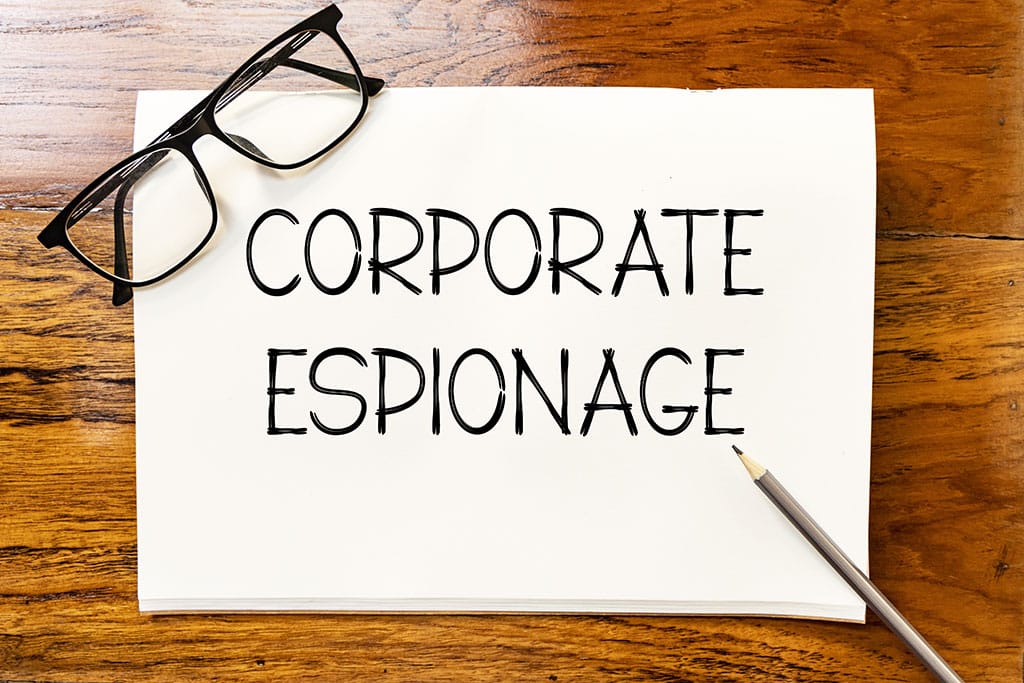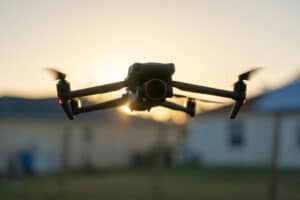Corporate espionage is a big deal today, with companies constantly battling to protect their secrets from prying eyes. Whether it’s through hacking, bribery, or old-fashioned spying, these covert activities can cripple businesses.
Let’s dive into how private investigators (PIs) play a pivotal role in uncovering these corporate espionage activities and how they can protect businesses from these hidden threats.
Understanding Corporate Espionage
Industrial espionage, also referred to as espionage, entails the acquisition of sensitive business data. This unethical practice can significantly disrupt a company’s operations and competitive position. Common techniques involve breaching databases, theft of documents and incentivizing insiders to disclose information.
IFW Global categorizes espionage into direct and indirect strategies. Direct approaches may include theft or covert surveillance while indirect methods often center around cyber-attacks aimed at breaching company defenses and extracting valuable information.
Consequences of Espionage
The consequences of espionage are extensive. It can result in losses that tarnish a company’s reputation and diminish investor trust. Additionally, it can impede innovation since stolen data frequently relates to product innovations or strategic initiatives. Investopedia emphasizes how these actions not only harm companies but also have broader economic ramifications.
To combat these risks effectively, organizations must establish security protocols and regularly assess vulnerabilities through audits and instill a culture of awareness among employees. Recognizing the tactics and impacts of espionage is essential for businesses seeking to safeguard their resources and retain a competitive advantage.
The Role of Private Investigators
PIs are essential allies in the fight against corporate espionage. They employ a variety of skills and techniques to uncover and prevent these covert activities. According to the FBI’s Company Man Campaign, PIs are crucial in identifying and mitigating espionage threats.
Key Roles and Responsibilities:
- Surveillance: PIs conduct discreet surveillance to monitor suspicious activities and gather evidence.
- Digital Forensics: They use advanced tools to trace cyber-attacks and analyze digital footprints.
- Background Checks: PIs perform thorough background checks on employees and partners to identify potential internal threats.
Techniques Utilized:
- Undercover Operations: Infiltrating organizations to gather critical intelligence.
- Data Analysis: Examining communication records and financial transactions for anomalies.
- Security Audits: Assessing company defenses to identify vulnerabilities.
By leveraging these methods, PIs help companies safeguard their intellectual property and maintain competitive integrity. Their expertise not only uncovers existing threats but also strengthens a company’s overall security posture, making it more resilient against future espionage attempts.
Methods and Techniques Used by PIs
Private investigators employ a range of sophisticated methods and techniques to uncover corporate espionage. These techniques are designed to gather solid evidence while maintaining discretion and adhering to legal standards.
Digital Forensics
PIs use digital forensics to track cyber-attacks and retrieve crucial data. This involves analyzing digital footprints, identifying malware, and tracing hacking activities to their source.
Surveillance
Surveillance is a core technique, allowing PIs to monitor suspects and document illicit activities. This can include physical surveillance, such as tracking movements and interactions, as well as electronic surveillance, like monitoring emails and phone calls.
Background Checks
Conducting thorough background checks on employees and business partners helps identify potential internal threats. This includes scrutinizing employment history, financial records, and personal affiliations.
Undercover Operations
PIs may go undercover within organizations to gain firsthand information about espionage activities. This can involve posing as employees or business associates to infiltrate networks and gather intelligence.
Security Audits
Regular security audits are essential for identifying and addressing vulnerabilities. PIs assess company defenses, from physical security measures to cybersecurity protocols, ensuring comprehensive protection against espionage.
These methods, when combined, provide a robust defense against corporate espionage, protecting businesses from significant losses and reputational damage.
Ethical Considerations in Corporate Espionage Investigations
Conducting corporate espionage investigations involves navigating complex ethical landscapes. PIs must balance their investigative duties with strict adherence to legal and ethical standards to ensure the integrity of their work and protect the rights of individuals involved as described by the FBI.
Legal Compliance
Investigators must follow all applicable laws, including privacy and surveillance regulations. Unauthorized surveillance or data collection can lead to significant legal repercussions. Ensuring that all actions are legally justified is paramount to maintaining the legitimacy of the investigation.
Privacy Concerns
Respecting the privacy of individuals is critical. PIs need to avoid unnecessary invasions of privacy, focusing only on relevant information that pertains to the investigation. Ethical guidelines dictate that personal information should be handled with utmost care and confidentiality.
Confidentiality
Maintaining confidentiality is essential in protecting the interests of clients and subjects of investigations. Investigators must ensure that all findings and methods used remain confidential and are disclosed only to authorized parties.
Ethical Dilemmas
PIs often face ethical dilemmas, such as balancing the need to gather information with the potential harm to individuals or companies. Decision-making should be guided by ethical principles, prioritizing integrity and fairness.
Mitigation and Prevention Strategies
Protecting against corporate espionage requires a multi-faceted approach. Businesses must be proactive in implementing security measures and fostering a culture of vigilance. Here are some effective strategies:
- Stringent Access Controls: Limit access to sensitive information to only those who need it. This can be achieved through robust authentication processes and regular reviews of access permissions.
- Employee Training: Regularly educate employees on the importance of data security and the potential threats posed by corporate espionage. Training should include recognizing social engineering tactics and proper data handling practices.
- Regular Audits: Conduct frequent security audits to identify and address vulnerabilities. These audits should cover both physical security measures and cybersecurity protocols. IFW Global emphasizes the importance of these regular checks in preventing espionage activities.
- Cybersecurity Measures: Implement advanced cybersecurity measures such as firewalls, encryption, and intrusion detection systems. Monitoring digital footprints can help detect unauthorized access or copying of sensitive information.
- Confidentiality Agreements: Ensure all employees and business partners sign confidentiality agreements that outline the consequences of disclosing sensitive information. This legal safeguard can act as a deterrent against potential espionage.
Conclusion
Private investigators are indispensable in the battle against corporate espionage. They leverage a range of techniques, from digital forensics and surveillance to undercover operations, to uncover and mitigate threats.
By adhering to ethical and legal standards, PIs ensure their investigations are both effective and compliant. For businesses, the key to protection lies in proactive measures such as stringent access controls, regular audits, and comprehensive employee training.
As corporate espionage tactics evolve, continuous vigilance and adaptation are essential to safeguarding company assets and maintaining a competitive edge.
El Dorado can provide premium protection at an affordable price. Give El Dorado Insurance a call today to make sure you are fully covered or find out what kind of insurance needs a Private Investigator might have.






